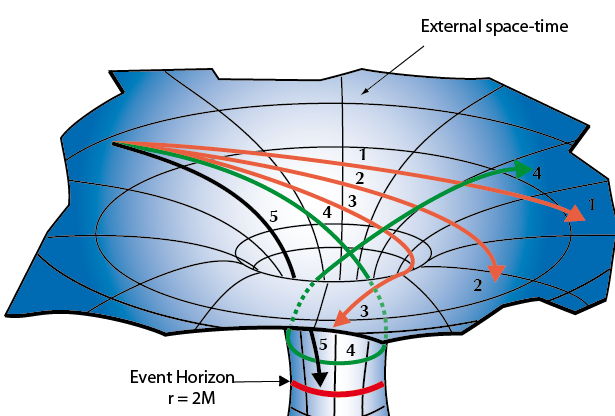Foreword.
Since light can't escape from a black hole, we can assume that light is influenced by gravity.
So I can imagine that light that would otherwise escape from a black hole is in fact restrained/slowed from the gravity in the black hole.
A light ray/photon that is going in direction of a black hole can also be accelerated from black hole gravity? In this case is light going faster that light speed?
Argue each point if i'm wrong.

